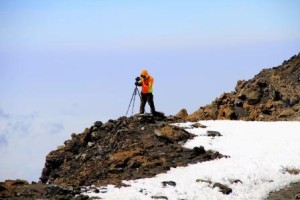Google Maps Takes Users To The Highest Mountain Peaks In The World
Google Maps offered users breathtaking views of the world’s highest mountain peaks today with the launch of 360-degree images from Aconcagua in South America, Mount Kilimanjaro in Africa, Mount Elbrus in Europe, and the base camp at Mount Everest in Asia. Taken with a lightweight tripod and digital camera using a fish-eye lens, a group […]

Taken with a lightweight tripod and digital camera using a fish-eye lens, a group of Google employees traveled across the globe to capture imagery from the world’s highest peaks that can now be seen from desktops and smartphones.
“Today’s announcement is part of Google’s ongoing effort to build the most comprehensive, accurate and usable map of the world. This new imagery makes it possible for Google Maps users to explore the far reaches of the world — to experience majestic and remote places — that they may never get the chance to visit in their lifetime, right on their smartphone or desktop computer,” said a Google spokesperson.
The 360-degree photos of Mount Everest were taken during a 2011 expedition to the Mount Everest base camp. Street view images of Nepal’s Namche Bazaar and inside the Tengboche Monastery, along with a photo of the Mount Everest trekkers and their guides, can be seen on the Google Maps Lat Long Blog.
More images of Mount Everest, Africa’s Mount Kilimanjaro, Russia’s Mount Elbrus and Argentina’s Aconcagua can be viewed on Google’s Official Blog.
Google confirmed that while there are no immediate plans to add more 360-degree views of other remote locations, Google Maps is always working to bring more useful and comprehensive imagery to users around the globe.
“We are excited about the many possibilities we have yet to explore,” said Google’s spokesperson.
Opinions expressed in this article are those of the guest author and not necessarily Search Engine Land. Staff authors are listed here.
Related stories
